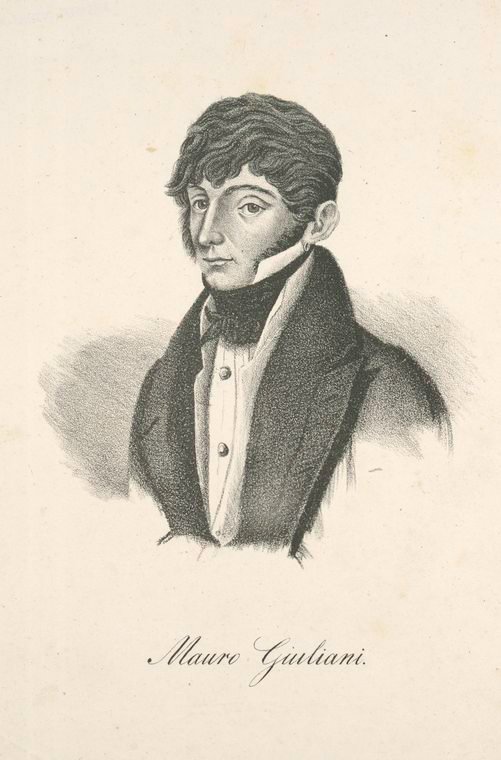Fernando Sor: The “Beethoven” of the Guitar?
As every classical guitarist has surely heard just as often as Rodrigo’s Concierto de Aranjuez, Fernando Sor, the eminent early-19th Century composer for the guitar, is often referred to as “the Beethoven of the guitar.” Even distinguished classical guitarists of today, such as Manuel Barrueco, carry this label forward, as Barrueco used it for the title of his all-Sor album. Yet while the Beethoven label for Sor is commonplace, it is nevertheless somewhat misplaced. Another early-19th Century guitar composer , Mauro Giuliani, possesses an even closer musical (and personal) kinship with Beethoven. And Giuliani wrote just as impressively for the guitar as Sor.
Sor, best known for his solo and duo compositions, gained the Beethoven moniker from Francois-Joseph Fétis, a contemporary critic, who likened his expert compositions and virtuoso guitar playing to the greatness of the keyboard and symphonic master, the piano being a still-developing instrument at the time. And, undoubtedly, the Beethoven label has its justifications, as many of Sor’s works still remain standard repertoire. And, it should be noted, as with Beethoven’s symphonic legacy, Sor also composed some orchestral works, to include three symphonies (although strangely no guitar concertos). But, due to Sor’s monumental guitar legacy, all these non-guitar works now go largely unheard and unplayed.
Meanwhile, another early-19th Century guitar composer well-regarded in his time, Wenzeslaus Matiegka, has also been given the “Beethoven of the Guitar” label. But his coronation appears to have been made only by the guitarist David Leisner, whose all-Matiegka album carries the title. However, Matiegka composed only a small body of works, few of them beyond solos or small ensembles. And he as well had no real connection to Beethoven himself, making Matiegka more of a usurper than a worthy titleholder.
Strangely absent from any coronation debate is Mauro Giuliani, another early-19th Century guitar virtuoso, who in fact had some personal and musical connections to Beethoven, though slight, and who as well left us with an impressive body of guitar compositions.
Best known for his First Guitar Concerto in A major (opus 30), just from it alone Giuliani will remain a Beethoven-like giant in the classical guitar realm far into the future. But it’s his Third Guitar Concerto (first published circa 1820) which possesses distinct Beethoven overtones, as if Giuliani purposefully included brief references from Beethoven’s symphonies as subtle homage.
In the Third Concerto’s first movement, a keen listener can pick out echoes from the first movement of Beethoven’s Sixth Symphony, with both works similarly scored in the key of F major. And although it might just be musical coincidence, not an intentional allusion, a brief passage in the concerto’s third movement mimics the metronome-like second movement of Beethoven’s Eighth Symphony (also in F major).
Coupled with the fact that Giuliani played in the cello section of the 1813 premiere of Beethoven’s Seventh Symphony, conducted by Beethoven himself, this further detail adds more weight to Giuliani being the more apt “Beethoven of the Guitar.” And with Sor’s compositional legacy firmly planted in the annals of classical guitar, would it not make more sense anyway to refer to Sor as, simply, the “Fernando Sor of the Guitar”?
Fernando SorMauro GiulianiMarch 1, 2023

